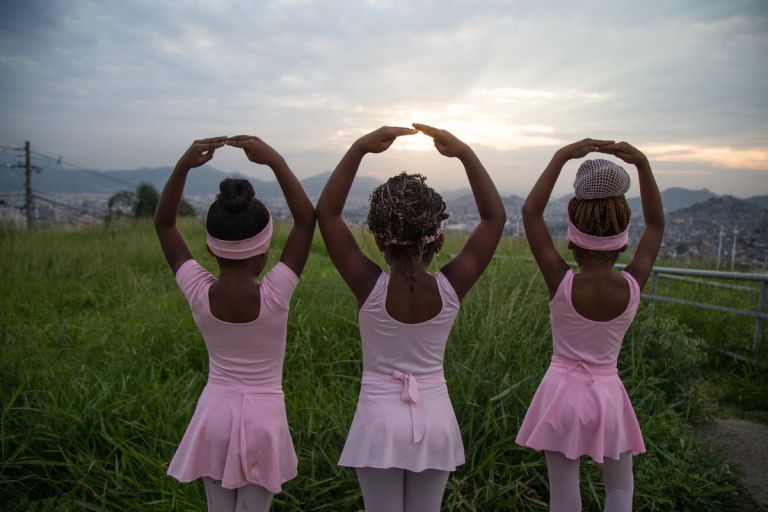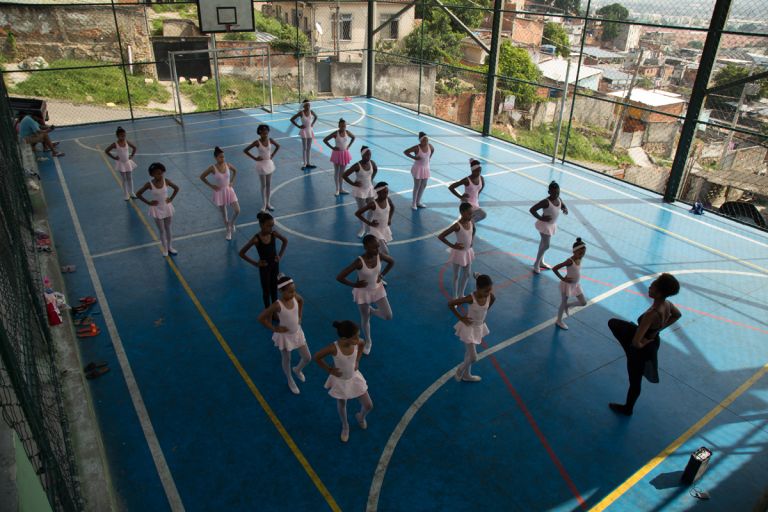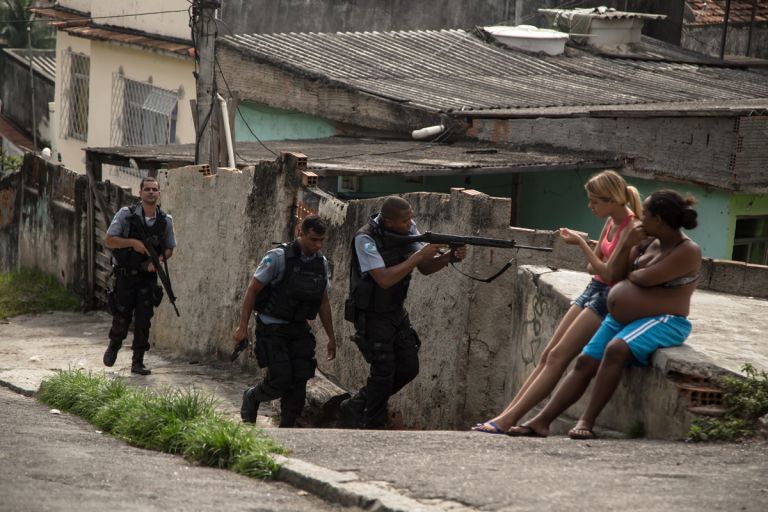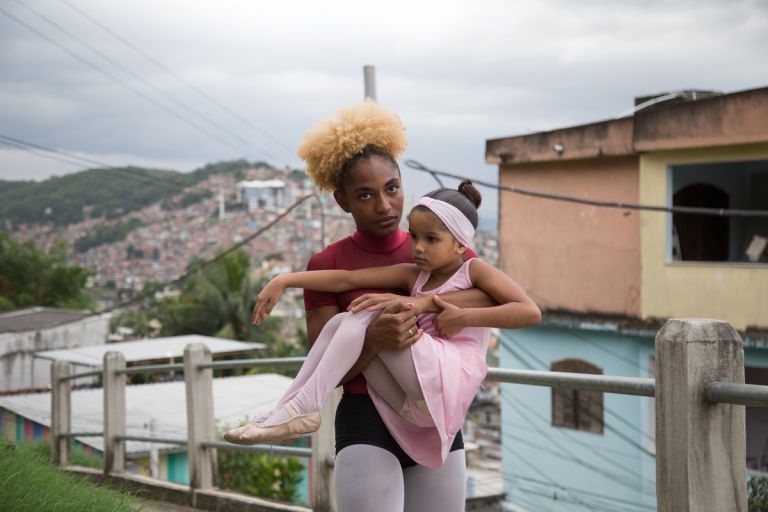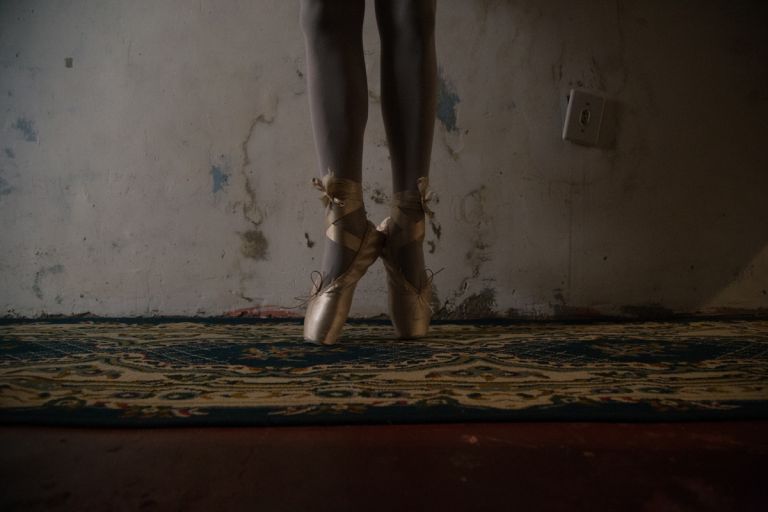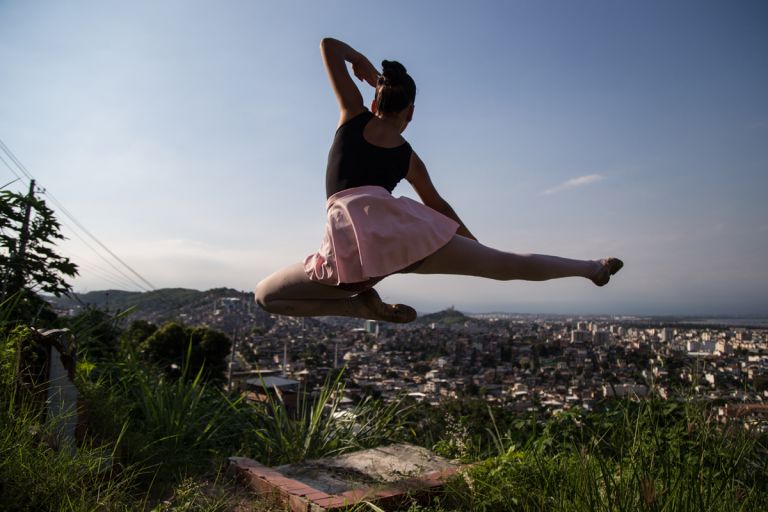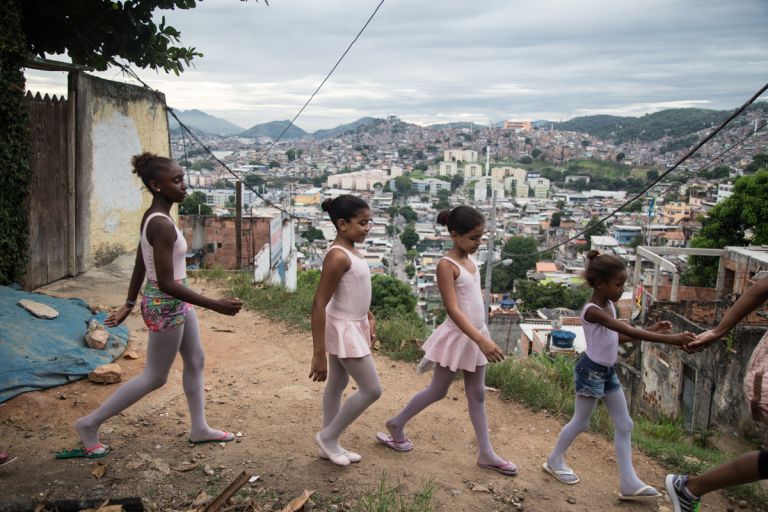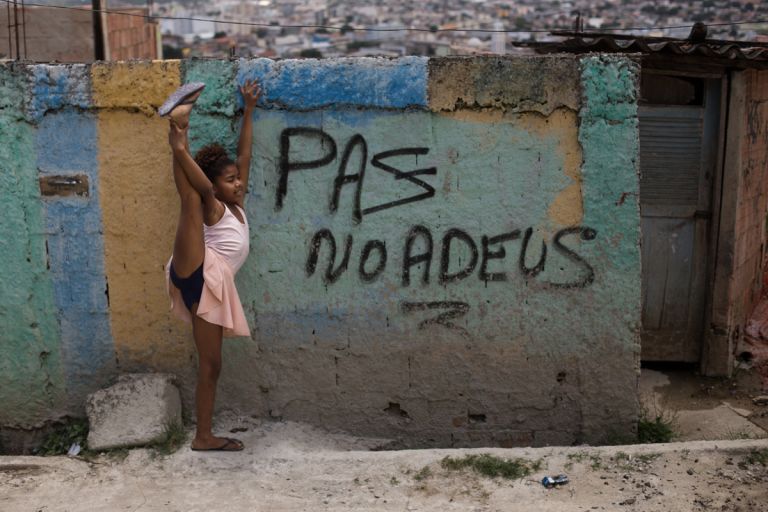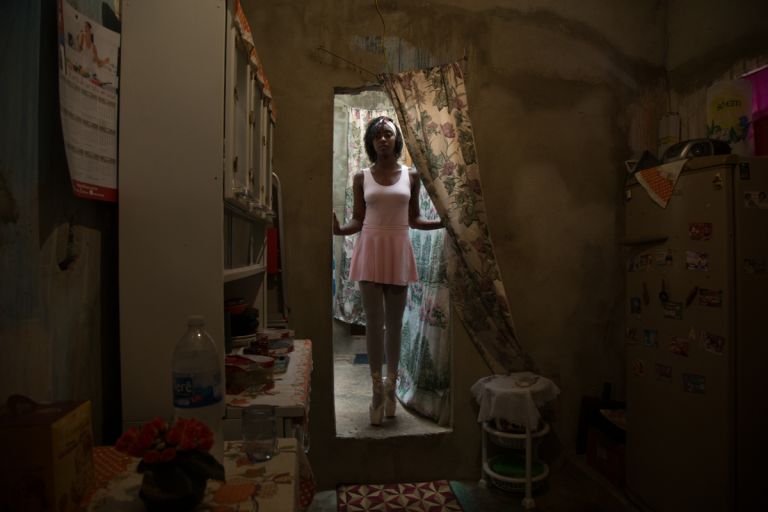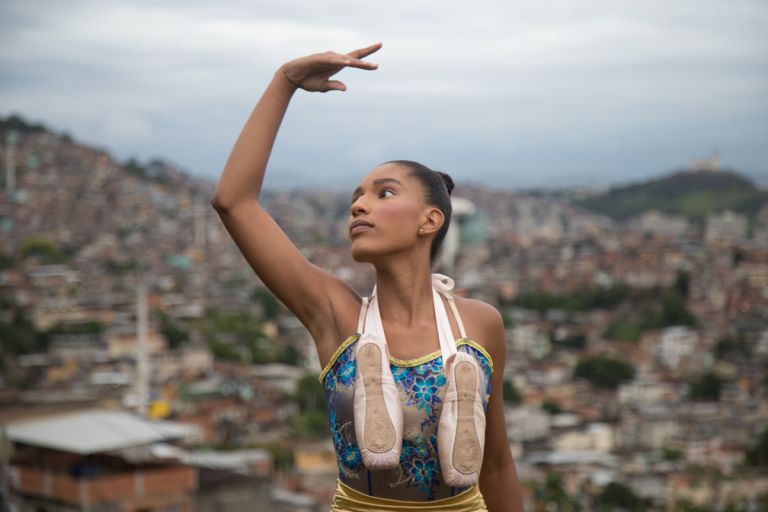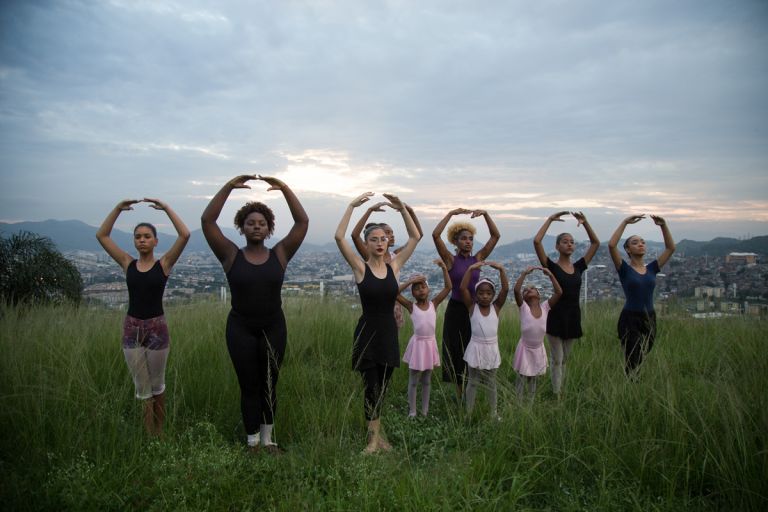Morro do Adeus, in Complexo do Alemão, covers a bloody narcoterritorial war between Vermelho Command and Pure Third Command, one of the most violent in Rio de Janeiro. A social project coordinated by a local young woman named Tuany Nascimento empowers more than 200 young girls, strengthening their identity, their gender and their origins through ballet.
In addition to living with constant shootings, police violence, drugs, prostitution, lack of resources and opportunities, these girls must fight against the stigma of being black and being women, in a racist and sexist society where gender violence is very common and naturalised. Brazil is the country with the fifth highest rate of femicides in the world. Afro-descendant communities represent more than half of its population, but they are also the ones that die the most, that earn the least and the ones that suffer from unemployment the most. Women occupy only 0.4% of executive positions. 7 out of 10 people killed violently in Brazil are Afro-descendants.
Karla, a student of the project, at 17 years old is plagued by tragedies. Two dead brothers, another brother in prison. Her father, a worker, was killed by a police officer who mistook him for a drug dealer. The policeman was never tried and father died due to lack of medical attention. The family received death threats that prevented them from filing a complaint. A short time later they were expelled from their home, now they live in even more precarious conditions in Complexo da Maré.
Families expelled from the favelas in Rio de Janeiro are another tragic consequence of the narcoterritorial wars. The case of Morro do Adeus is very particular in that sense, since it has changed command 6 times in the last 5 years, in each change the new command expels all families who have a relative linked to the enemy faction from the community. At least a hundred families have been evicted from Morro do Adeus.
It is a long-term project registered in the last 8 years.
